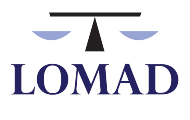“[T]he doctrine of laches is applicable in workers’ compensation proceedings when the remedy is equitable in nature.” Matter of Schroeter v Grand Hyatt Hotel, 262 AD2d 725 [3d Dept. 1999]. Apportionment is not an equitable remedy, and thus the doctrine of laches does not apply to questions of apportionment. Matter of Milletich v International Term. Operating Co., 57 AD2d 660 1977 [3d Dept. 1977], lv denied 42 NY2d 810 [1977].
What does that all mean? Even seasoned lawyers may need to dust off a text book to understand the distinction between an equitable and legal remedy (particularly since American common law does not follow the distinction often found in other common-law systems that more strictly delineate courts in equity and courts in law). Generally speaking, legal remedies typically involve monetary damages whereas equitable relief typically refers to injunctions, specific performance, or vacatur.
While laches may be invoked infrequently in a WC setting, a strict reading of the law suggests its application to WC is much more closely circumscribed than its use (or even WC ruling) would suggest.

